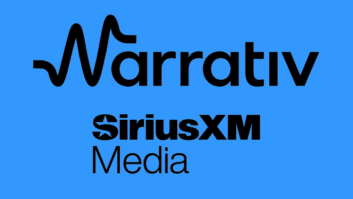“Our research indicates that people, especially younger people, think this is making radio cool again. That’s what our industry desperately needs.”
So says Emmis Chair/President/CEO Jeff Smulyan. And that’s important as the industry tries to lure back younger audience demos.
Thousands of consumers are telling their carriers as well as the FCC and Congress they want the FM chip activated their phone, says Smulyan, giving credit to the stations airing FM chip awareness ads. Those ads aired nearly 52,000 times from mid-February to the end of March and Emmis subsequently noticed the NextRadio app downloads increased by 400%.
In related news, Allstate has begun an enhanced ad campaign in some 70 markets, according to Smulyan.
The beta test of enhanced, interactive ads, complements a traditional ad buy. “We have the ability, through our own airwaves, to sell enhanced advertising at significantly higher rates,” says Smulyan, who also notes the change “puts our industry into the new era of digital advertising.”
Smulyan and other NextRadio app proponents have long advocated the benefits of combining traditional broadcast listening with an interactive, Internet-delivered component.
The current Allstate ad flight has a visual element, provided by NextRadio stations, that aligns with the ad copy, according to Emmis SVP/CTO Paul Brenner, who describes the ads as driving people to find their local Allstate agent.
He and Smulyan say results from this ad campaign, slated to run through November, are being watched by other advertisers and their agencies. They’re also going to be focused on the measurable ROI, impressions and activity generated by the ads.
As for the concept of FM chips in smartphones in general, Smulyan says other carriers besides Sprint, as well as handset makers, the FCC and both houses of Congress are watching the NextRadio effort closely. “We’re encouraged by what we see” so far, he said during a webinar yesterday. “We know both the House and the Senate are very focused on this” issue, he said, adding that the more people who are aware of the FM chip issue the better that is for the radio industry.







